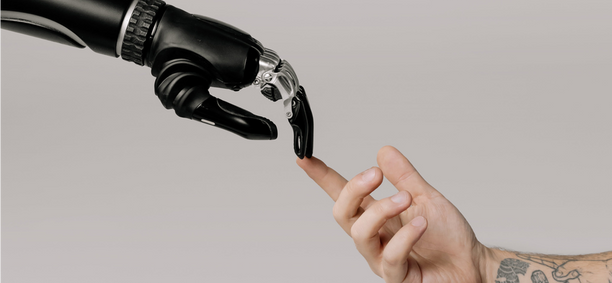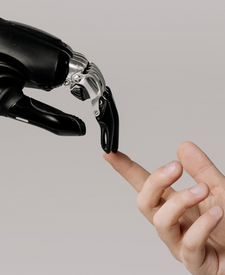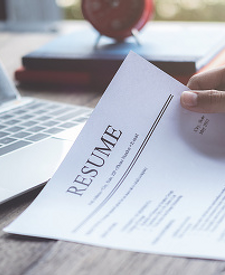What tips on resume, your future employee will thank you for
The resume is an important document that allows the employer to get to know you through the prism of experience and skills. An employer or recruitment agency in Romania, for example, needs to know where and on what positions you have worked so far and what skills you have. Therefore, it is very indispensable that your resume meets all the necessary criteria and is compiled correctly and in detail.
What are the elements of a resume?
Providing your resume to the company where you are applying for the position is the first step in the hiring process. If your resume does not contain all the influential elements, it can be rejected, and you will lose your chance to participate in the second step of the recruiting process. For this reason, you should always make sure that your document is complete and contains the most relevant information. So, a good resume should contain:
- Personal information such as first and last name, phone number, email address, place of residence, date of birth, and work experience – is the most significant element of your resume. It should include the names of the companies you've worked for, the length of time you've worked, and a brief description of what you've done. Don't forget to have the most up-to-date information at the top, i.e., your most recent job,
- education – here it is best to submit the most recent level of education, such as university, emitting high school and elementary school, keeping in mind the reverse chronology, as in the case of work experience,
- foreign languages – the languages you know and your level of proficiency in them,
- skills and competencies that distinguish you from competitors for the position. To increase your chances, you can specify not only popular skills but also more unique skills that will attract the recruiter's attention,
- courses, training, certificates – documents confirming your skills acquired outside of work. An employer will certainly appreciate and notice your additional competencies and desire for personal development,
- and interests – this is an area where you present yourself and share your hobbies, so it is important not only to write a list but also to try to describe your interests in a few words,
- the personal data protection clause allows the recruiter to contact you in a way that is respectful of the law.
- Your photo, which should be placed at the top right of your first and last name, is also an indispensable element. The photo should be taken professionally and with high quality.
How to write a cover letter?
Few people dare to include a cover letter to their resume. Some people think it is a waste of time and no one will ever read it. However, a cover letter can give you an advantage in the eyes of a future employer and can expand your statement and tell more about your skills and why you should be hired for the position.
What is a cover letter?
A cover letter complements a resume but is not a duplicate of it. It is a detailed development of your resume. You can showcase your best qualities and motivation in your cover letter. With this document, you can convince your future employer that you are the ideal candidate for the job. Sometimes employers specify in the ad what documents are needed to apply, and increasingly they also ask for a cover letter. There are also cases where employers reject this form because many candidates do not prepare cover letters correctly. Whether a letter is needed or not, it is always a good idea to include it on your resume and show your best side.
What to write in a cover letter?
When writing your cover letter, you should keep in mind why you are looking for a job with this company and why you want a particular position. Of course, your knowledge of the company will be a big plus for you.
A good cover letter should be:
- aesthetic,
- transparent,
- aesthetically pleasing, transparent,
- one-sided,
- with specific information.
In order for your cover letter to contain all the essential elements, you should divide it into specific sectors, making it easier for you to remember what information to include.
Therefore, the cover letter includes:
- Title – Here you should put your information on the left side of the page, enter the date and place where the letter was written at the bottom right. You should enter the details of the addressee of the letter under the place and date,
- Introduction – you should introduce yourself and why you are writing the cover letter,
- Development – this is the most important part of the letter where you motivate your willingness to work for a particular position, then you introduce your competencies and skills related to the job you are applying for
- The conclusion is a summary of what you wrote earlier and an expression of your willingness to meet with the employer.
- The cover letter should be very accurate and detailed, containing only truthful information and facts about you and your qualifications. It is a kind of self-promotion, so you should not over-paint your information, but rather write important things to point out, especially about the company and the position for which you are applying.
Why write a cover letter?
A good cover letter gives you the opportunity to provide information that cannot be included in a resume. This way, you also show that you care about getting the job and doing your best, especially when the requirements do not mention a mandatory cover letter. You can also show your knowledge of the company, especially when you know a lot about it and have always dreamed of working for it. If you want to pursue a certain profession or work for a certain company, such a letter will certainly be a great support for you and increase your chances. Of course, it doesn't hurt to prepare such a letter and in a situation where you know exactly what you want to write, it won't take too much time. Often, when a given company is looking for workers, the competition is stiff enough, so it is worth doing everything you can to get the job you dream about.























